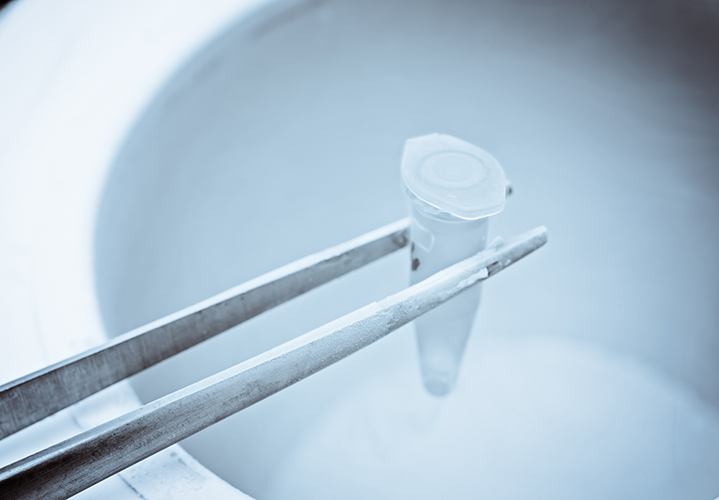The number of IVF cycles in the UK has increased tenfold since 1991 and IVF success rates have tripled over the last 20 years according to the Human Fertilisation and Embryology Authority. Whilst IVF has offered many people a chance to have a biological family where otherwise this would not be an option, some couples who have undergone IVF treatments have had to face the unexpected question of what happens to embryos stored during their marriage when that relationship breaks down. This can be particularly sensitive in circumstances where it may no longer be medically possible to create fresh embryos with another partner or donor.
Embryos created for fertility treatment can be stored for a maximum of 10 years under the Human Fertilisation and Embryology Act 1990 (currently extended to 12 years due to the COVID-19 pandemic). This means couples who have undergone fertility treatment together can sometimes be left with embryos in storage after their relationship has ended. Whether the embryos will continue to be stored, used for treatment or destroyed will be dependent upon the mutual consent of the parties.
Consent
Embryos can only continue to be stored and used in treatment with the consent of both parties, and that consent can be withdrawn by either party at any time. If one party withdraws their consent, a 12-month ‘cooling-off’ period will be triggered. During this period, the consent of both parties will need to be obtained not only for continued storage, but also for the use of embryos in treatment. If both parties do not then give consent for continued storage during the cooling-off period, the embryos will be destroyed once the 12-month period has elapsed.
The Courts of England and Wales have no power to intervene on behalf of the party who wants the embryos to be preserved. When forced to balance one party’s right to be a parent with the other’s autonomy and objection to becoming a parent, the right to a family life does not override the withdrawal of consent for the embryos to be used, even where it is a party’s last chance of becoming a biological parent.
Legal parenthood
Legal parenthood affects whether you are financially responsible for a child, whether the child will inherit your assets and your British nationality, and your rights to make court applications if there is a dispute in relation to the child.
When a party is deciding whether to consent to the use of embryos in treatment post-separation, the implications and ongoing legal obligations of legal parenthood should be carefully considered. Where parties are married and use embryos in treatment, both will be recognised as a legal parent unless it is shown that one does not consent to legal parenthood. Where parties are unmarried and consent to the use of embryos in treatment, the party who gives birth to the child is automatically recognised as the mother and legal parent. For the other party to be recognised as a legal parent, additional consent to legal parenthood must usually be given. However there is a lack of clarity in the law regarding the status of a man who donates embryos created with his sperm for he and his partner’s treatment, to a recipient who is single and will be parenting alone.
In 2017 the High Court refused to award a man damages against the fertility clinic when his former wife forged his signature on consent forms and gave birth to a daughter using frozen embryos. Family Court proceedings took place in relation to the child, and an order was made “confirming parental responsibility and shared residence in respect of the child.” This case is unusual as the father had not consented to the use of the embryos for treatment, but once the child was born the court found he had treated or intended to treat the child as a "child of the family". It is unclear whether he would have been given parental responsibility had he not done so.
In this case, damages equal to the financial cost of raising the child were sought. Although it was found that the clinic had failed to obtain proper consent from both parties, it was not held liable for the financial consequences of fatherhood, which were to be met by the father.
Death of a donor
As a general rule, IVF treatment using the gametes or embryos of a party who has died is only possible where there is a written signed consent to post-death storage and use. Consent should be sufficiently clear and detailed since it will be relied upon after it is too late to clarify the donor’s intentions, and consent to storage cannot be renewed or extended after the death of the donor.
However in 1997, in a rare exception to this general rule, the UK court allowed Diane Blood to export her deceased husband's sperm (which had been collected without his consent after he was unexpectedly incapacitated by meningitis) to Belgium where she successfully received IVF treatment. The court found that although treatment could not lawfully take place in the UK, it was an infringement of EU law to deny Mrs Blood her right to seek treatment elsewhere in Europe.
Whilst IVF clinics must comply with strict regulatory requirements for consent in relation to the storage of embryos, use of embryos in treatment and legal parenthood, it is important for couples to consider all of these issues carefully on separation before the giving or withdrawal of consent.

 Nicola Harries
Nicola Harries Grace Parker-White
Grace Parker-White